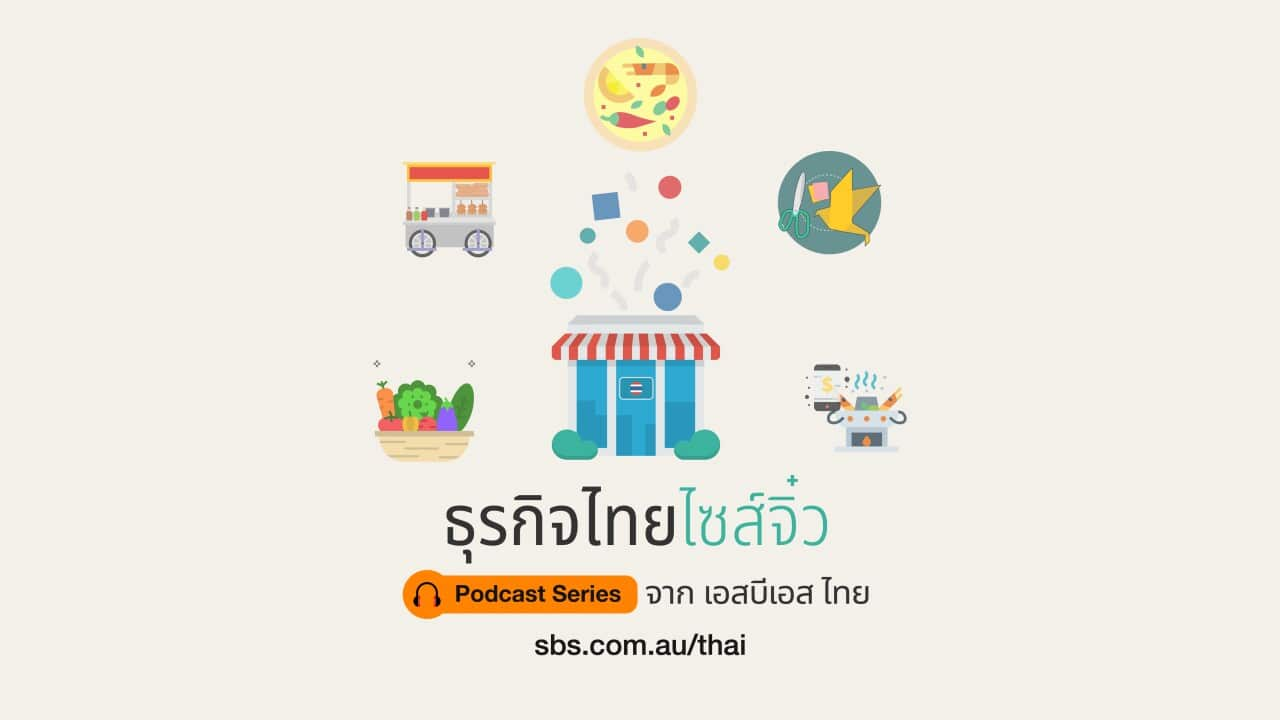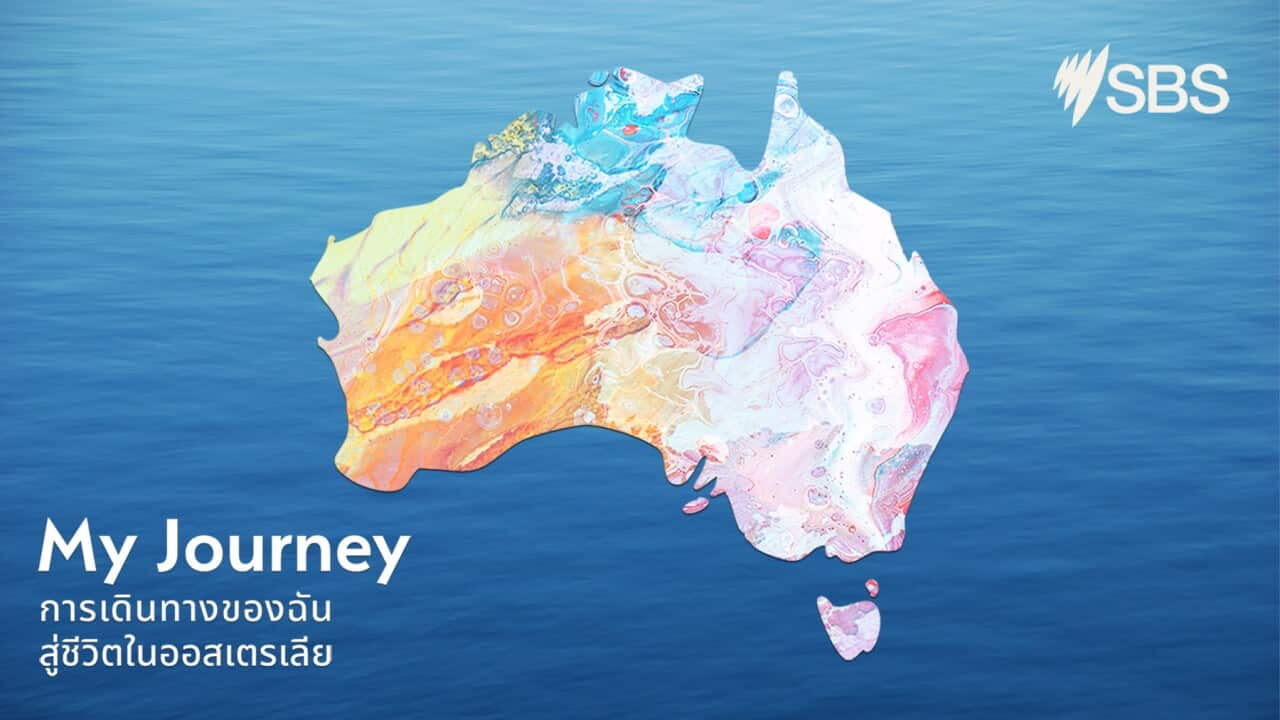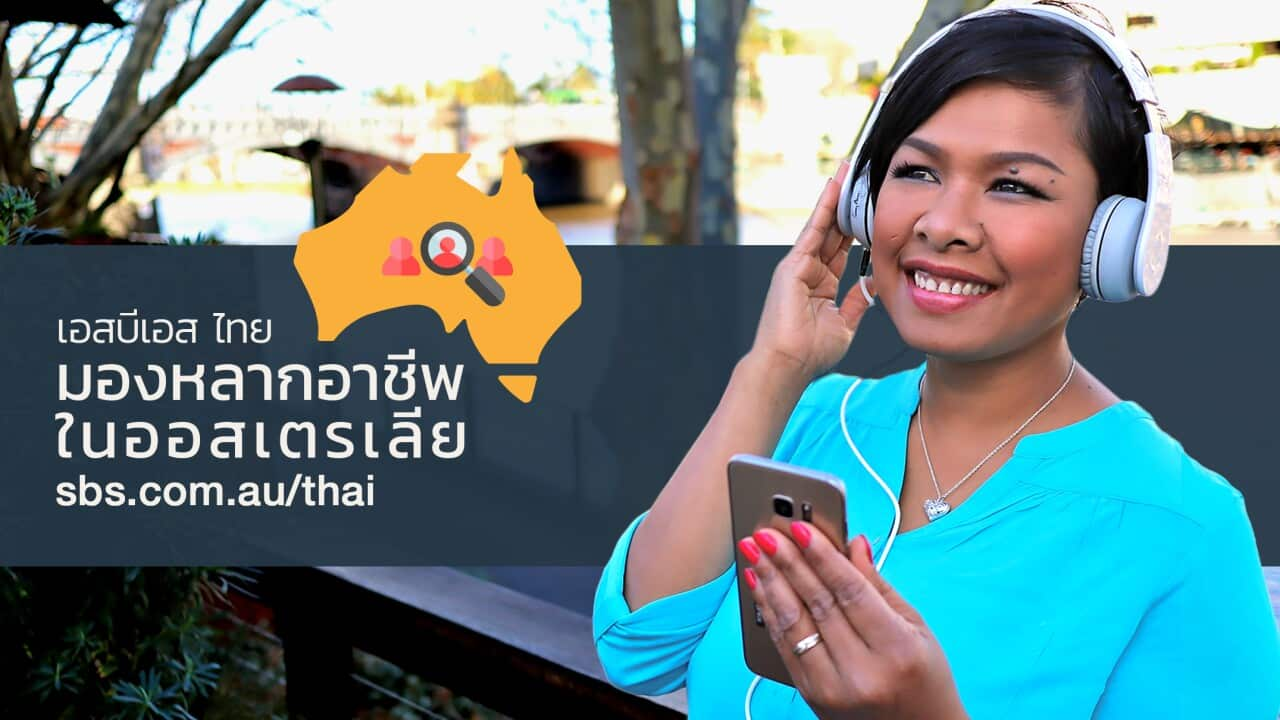จะช่วยเหลือคุณในการพูด เข้าใจ และเชื่อมต่อกับผู้คนในออสเตรเลีย
บทเรียนในตอนนี้เหมาะกับผู้เรียนในระดับกลางสูงไปจนถึงระดับสูง หลังจากฟังจบแล้ว หรือติดตามบทเรียนและเรื่องราวอีกมากมากมายที่
คำอธิบายสำหรับบทเรียนนี้
จุดประสงค์ในการเรียนรู้
การพูดคุยเกี่ยวกับอาหารที่ดีต่อสุขภาพและน้ำหนักร่างกาย
วิธีต่าง ๆ ในการพูดว่าเรามีน้ำหนักตัวขึ้น
- I’ve put on a little bit/ put on a little weight. (ฉันน้ำหนักขึ้นนิดหน่อย)
- I got rather plump since we last saw each other. (ฉันอวบขึ้นตั้งแต่เราเจอกันครั้งสุดท้าย)
- I really need to get into shape; otherwise, I won’t fit into the suit. (ฉันต้องทำให้หุ่นพอดี ไม่งั้นคงใส่สูทตัวนี้ไม่ได้)
- It’s so easy to put on weight. (มันง่ายมากเลยที่น้ำหนักจะขึ้น)
- After each diet, I put the weight straight back on every time. (หลังจากแต่ละมื้อ ฉันก็น้ำหนักขึ้นกลับมาทุกที)
วิธีต่าง ๆ ในการพูดเกี่ยวกับการคุมอาหารของเรา
- I need to go on a diet. (ฉันต้องคุมอาหาร)
- I don’t know if diets actually work. (ฉันไม่รู้ว่าการคุมอาการจะได้ผลจริง ๆ ไหม)
- I’ve read somewhere you can lose weight fast with a crash diet. (ฉันอ่านจากที่หนึ่งมาว่าคุณสามารถลดน้ำหนักได้อย่างรวดเร็วด้วยการอดอาหาร)
- I’ve been on every diet from Atkins to Flexitarian diet. (ฉันลองการคุมอาหารทุกอย่างแล้ว ตั้งแต่ลดคาโบไฮเดรตจนถึงอาหารกึ่งมังสวิรัติ)
- I have lactose and gluten intolerance, so I should probably speak to a nutritionist before making any big changes. (ฉันมีภาวะแพ้แลคโตสและกลูเตน ดังนั้นฉันจึงควรพูดคุยกับนักโภชนาการก่อนที่จะเปลี่ยนแปลงอะไรครั้งใหญ่)
- Keeping an eye on calories might help you to slim down. (การจับตาดูปริมาณแคลอรี่อาจช่วยให้คุณผอมได้)
- I definitely need to cut down on carbs and cut out fast food and soft drinks. (ฉันต้องลดการกินคาร์โบไฮเดรต ลดอาหารฟาสต์ฟู้ดและน้ำอัดลม)
- I need to resist my urge for/craving for comfort food. - ฉันต้องสู้กับความความอยากกินอาหารอิ่มใจ (คอมฟอร์ตฟู้ด)
- I’m on a flexitarian diet. - ฉันกำลังคุมอาหารด้วยการกินกึ่งมังสวิรัติ
สำนวนภาษาพูดต่าง ๆ
- A couch potato – คนที่ออกกำลังการเพียงเล็กน้อยหรือไม่ออกกำลังกายเลย และใช้เวลาบนเก้าอี้หรือโซฟาเพื่อดูโทรทัศน์เป็นเวลานาน
- Keeping an eye on someone or something – จับตาดูใครหรือสิ่งใดอย่างระมัดระวังมาก ๆ
- Comfort food – อาหารอิ่มใจ หมายถึงอาหารที่ทำให้เรารู้สึกสบายใจ บ่อยครั้งเราจะกินเมื่อรู้สึกเศร้าหรือกังวล
คำศัพท์ต่าง ๆ
- Diet หมายถึง การคุมอาหาร หรือสมดุลที่เปิดโอกาสให้เรารับประทางอาหารที่แตกต่าง ซึ่งจะให้สารอาหารอย่างเพียงพอเพื่อสุขภาพที่ดี
- Nutrients หมายถึง องค์ประกอบทางเคมีที่พบในอาหารซึ่งจำเป็นต่อสุขภาพและการเติบโต
- Nutritional value หมายถึง คุณค่าทางอาหาร ซึ่งเป็นวิธีที่เราใช้อธิบายว่าอาหารนั้น ๆ ดีต่อสุขภาพสำหรับเราอย่างไร มันคือหน่วยวัดสารอาหารที่จำเป็นที่พบในอาหารชนิดต่าง ๆ
- Carb เป็นตัวย่อของคาร์โบไฮเดรต (carbohydrate)หมายถึง อาหารที่ให้พลังงานกับร่างกาย พบได้ในขนมปัง พาสต้า มันฝรั่ง คุกกี้ ข้าวโพด ฯลฯ
- Calorie คือหน่วยวัดว่าอาหารชนิดต่าง ๆ ให้พลังงานกับร่างกายได้เท่าใด คล้ายกับหน่วยตวงเป็นช้อนโต๊ะ หรือหน่วยวัดความยาวเป็นนิ้ว
- To slim down หมายถึง การทำให้ผอมหรือน้ำหนักลด
- To crave something หมายถึง รู้สึกต้องการบางสิ่งเป็นอย่างมาก
- Crash diet หมายถึง การคุมอาหารที่ออกแบบให้ช่วยลดน้ำหนักได้อย่างรวดเร็ว ปกติแล้วจะอนุญาตให้รับประทานอาหารที่มีแคลอรี่ต่ำมาก
- Atkins diet หรือการกินอาหารแคลอรี่ต่ำ เนื่องจากเป็นอาหารที่มีคาร์โบไฮเดรตเชิงเดี่ยวในปริมาณต่ำ ผู้ควบคุมอาหารด้วยวิธีนี้จะรับประทานอาหารอย่างผลไม้ ผัก ธัญพืช อาหารประเภทนมไขมันต่ำ เนื้อสัตว์ปีก ปลา ถั่วเปลือกแข็งและเปลือกอ่อน
- Flexitarian diet เป็นอาหารกึ่งมังสวิรัติที่ส่งเสริมการกินอาหารหลายหลายโดยเฉพาะอาหารจากพืช และกินเนื้อสัตว์น้อยลง
- Mediterranean diet ได้รับแรงบัลดาลใจจากอาหารของผู้คนที่อาศัยอยู่ใกล้กับทะเลเมดิเตอร์เรเนียน และมีอาหารที่ดีต่อสุขภาพมากมาย เช่น ธัญพืช ผลไม้ ผัก อาหารทะเล น้ำมันมะกอก และปลา
- Lactose intolerance หมายถึง ผู้ที่ไม่สามารถย่อยแลคโตสหรือน้ำตาลธรรมชาติที่พบในนมได้ทั้งหมด
- Gluten intolerance หมายถึงผู้ที่มีปฏิกิริยารุนแรงต่อกลูเตน หรือโปรตีนที่พบในข้าวสาลี ข้าวบาเลย์ และข้าวไรย์
- Nutritionist หมายถึง ผู้เชี่ยวชาญในเรื่องผลกระทบของอาหารที่มีต่อสุขภาพและความเป็นอยู่ที่ดี
- Dietitian คือผู้เชี่ยวชาญในเรื่องผลกระทบของอาหารที่มีต่อสุขภาพและความเป็นอยู่ที่ดี ซึ่งสำเร็จการศึกษาด้านโภชนาการที่ได้รับการรับรองจากมหาวิทยาลัยในออสเตรเลีย
- Obesity คือภาวะมีไขมันในร่างกายเป็นจำนวนมากซึ่งมีผลกระทบในแง่ลบต่อสุขภาพ
ข้อมูลทางวัฒนธรรม
สถาบันสุขภาพและสวัสดิภาพออสเตรเลีย รายงานว่ามีจำนวนเด็กและผู้ใหญ่ที่มีน้ำหนักตัวเกินนั้นกำลังเพิ่มขึ้น
ในปี 2019 ออสเตรเลียมีสัดส่วนผู้มีน้ำหนักตัวเกินมาตรฐานหรือผู้มีภาวะโรคอ้วนอายุตั้งแต่ 15 ปีขึ้นไปมากที่สุดเป็นอันดับ 6 ในกลุ่มประเทศสมาชิกองค์การเพื่อความร่วมมือทางเศรษฐกิจและการพัฒนา (OECD)
ข้อมูลจากหน่วยงานสังเกตการณ์ภาวะโรคอ้วนระดับโลก (Global Obesity Observatory) ออสเตรเลียอยู่ในอันดับที่ 19 ของประเทศที่มีผู้มีภาวะโรคอ้วนมากที่สุดในโลก โดยอันดับ 1 คือประเทศนาอูรู ส่วนเวียดนามคือประเทศที่มีอัตราร้อยละของผู้มีภาวะโรคอ้วนต่ำที่สุดในโลก

Source: Getty / Fiordaliso
Transcript
(หมายเหตุ: ไม่ใช่บทถอดเสียงแบบคำต่อคำ)
Hello and welcome to the SBS Learn English podcast, in which we help Australians to speak, understand and connect.
My name is Josipa, and like you, I'm still learning new phrases and vocabulary that helps me communicate better in English.
In this episode, we'll practise how to talk about food, diet and our body weight.
An English-language proverb says that an apple a day keeps the doctor away.
The meaning behind this common saying is that if we have a balanced diet, we probably won’t need to go to the doctor because we won’t be sick.
Now, I don't know about you, but during the restrictions and lockdowns in the past two years, I've become a bit of a couch potato, that is, instead of exercising outside I spent a lot of time eating unhealthy snacks on the sofa, and now I find that I have put on a little weight.
I might say, “I’ve put some weight on”.
Let’s hear what other expressions we can use to say we have gained some weight. With us are Allan and Maryanne,
Allan:
I really need to get into shape; otherwise, I won’t fit into the suit I’m planning to wear for the wedding.
Maryanne:
Keeping an eye on calories might help you to slim down.
Allan:
Yeah, I definitely need to cut down on carbs and cut out fast food and soft drinks.
Maryanne:
Basically, you need to resist eating too much comfort food. It’s easy to stack on the kilos when you eat too much junk or highly processed food.
Let’s look into one phrase at a time. Allan said,
I really need to get into shape.
Allan needs to get into shape. That means that he wants to become lean and fit. You can also say get back into shape if you're going to become fit and healthy once again. For example, "After giving birth to my daughter, I started swimming to get back into shape."
Maryanne then said,
Keeping an eye on calories might help you to slim down.
Keeping an eye on something means to carefully watch it.
You can use this for something like calories, which is a measurement of energy in food, or people. For example, you might say to your child, "Don't be naughty, I'm keeping an eye on you!".
So, when Maryanne said that keeping an eye on calories might help Allan slim down, she means that he needs to be careful about how much he eats.
To slim down means to become thinner or lose weight.
Allan then said,
Yeah, I definitely need to cut down on carbs and cut out fast food and soft drinks.
Allan needs to cut down on carbs and cut out fast food.
Carbs is short for carbohydrates, and if you need to cut down on carbs, you need to reduce them, you need to eat less food that has a lot of carbs such as bread, pasta, potatoes, cookies, corn, and so on.
Allan also wants to cut out fast food and soft drinks. If you cut something out from your diet, you stop eating or drinking it completely.
At the end, Maryanne said,
Basically, you need to resist eating too much comfort food.
Comfort food is the type of food that makes us feel comfortable. We often want to eat it when we are sad or worried.
Now, let's get back to Maryanne and Allan's conversation. We'll hear Maryanne's last sentence once again.
Maryanne:
It’s easy to stack on the kilos when you eat too much junk or highly processed food.
Allan:
Yeah, I need to go on some diet. I’ve read somewhere you can lose weight fast with a crash diet.
Maryanne:
I don’t know if diets actually work. I’ve been on every diet from Atkins to a Flexitarian diet, and I put the weight straight back on every time.
Allan:
You know what else worries me? I have both lactose and gluten intolerance, so I should probably speak to a nutritionist before making any big changes.
In this dialogue, Maryanne used two different expressions to talk about gaining weight. First, she said it's easy to stack on kilos, and later, she told us how after diets she always puts the weight straight back on.
Talking about other people’s weight can be very sensitive and some softer, more considerate ways of saying that somebody gained weight are, “He’s looking a little bit heavier or, she’s rounded out a bit”.
Let’s hear Maryanne again,
It’s easy to stack on the kilos when you eat too much junk or highly processed food.
Junk food is the same thing as fast food, and by that, we mean food that is high in fat and carbs and often low in nutritional value’.
Highly processed foods are unhealthy foods that have been made in a factory.
Allan said,
I need to go on a diet. I’ve read somewhere you can lose weight fast with a crash diet.
People can follow different kinds of diets for different reasons, for example, for medical reasons.
So, if you want to start a diet, you could say, “I’ve put on five kilos, I need to go on a diet”.
Allan read that you can lose weight fast with a crash diet. A crash diet is a diet designed to help people lose weight very fast.
Maryanne then mentioned some other popular diets, let’s hear them again,
I’ve been on every diet from Atkins to a Flexitarian diet, and I put the weight straight back on every time.
The Atkins diet is a low carb diet, and people who follow this diet will eat foods low in carbohydrates such as fruits, vegetables, whole grains, low-fat dairy foods, poultry, fish, nuts, and beans.
A Flexitarian diet, as the words “flexible” and “vegetarian” suggest, is a semi-vegetarian style of eating that encourages eating less meat and more plant-based foods.
So, if you are thinking of becoming a vegetarian but are not ready to give up meat entirely, you could say, "I'm on a flexitarian diet."
There are too many diets to mention them all, can you think of some other diets you have heard of?
And lastly, Allan said,
I have lactose and gluten intolerance, so I should probably speak to a nutritionist before making any big changes.
If you are are intolerant to something it means that your body reacts badly if you eat or drink it.
Allan is lactose and gluten intolerant, so he thinks it would be best to speak to a nutritionist.
A nutritionist is a person who is an expert on the impacts of food on health and wellbeing. You can also ask for advice from a dietitian.
The main difference between dietitians and nutritionists is that most dietitians have graduated with an approved dietetics degree from an Australian university. In contrast, nutritionists aren't regulated and may not have many qualifications.
My guest today is my colleague Nikki Alfonso-Gregorio who among other things is a lifestyle and food writer for SBS Food.
Hi Nikki, it’s nice to have you here.
Nikki:
Hi Josipa. Did you know that the word “diet” originates from the Greek word “diaita”, which literally means “manner of living".
Josipa:
I didn't know that; that's cool. There's so much advice out there when it comes to weight loss. Magazines, podcasts and websites all promise that the latest popular diet will help you lose all the weight you want. How much can we trust food writers like yourself?
Nikki:
Ha ha. Well, we all know that we shouldn't believe everything we read. But jokes aside, I think it's fantastic that we have so much information out there so that people can make an informed decision because there is no one diet or weight-loss plan that fits everyone.
Josipa:
The Australian Institute of Health and Welfare reports that the number of children and adults who are overweight or obese is rising. According to their latest findings, over 25 per cent of Australian children and adolescents are overweight or obese.
According to the Global Obesity Observatory, Australia is the 19th most obese country in the world. Is this problem becoming a major public health issue in Australia?
Nikki:
Yes, it is. If you are obese this can have a negative impact on someone's entire quality of life. Heart disease, sleep, mood, and energy can all be affected. So it's a big problem for Australia.
Josipa:
Getting help from a nutritionist or dietitian can be pretty expensive. Are there any free services that can help us to choose the right diet for us or our children?
Nikki:
Yes, there are plenty of free resources out there. For example, is a free phone-based coaching service/ platform. Then we have , which offers a range of tools and calculators to help people make the changes they need to stay healthy. is another useful resource. It has fact sheets on obesity in Arabic, Chinese, Tagalog and Vietnamese for people who want to read in their first language.
A big thank you to our educational consultant Professor Lynda Yates, our guest Nikki Alfonso-Gregorio, Paul Nicholson and Coni Laranjeira who voiced the characters of Allan and Maryanne.
เรื่องราวอื่น ๆ ที่น่าสนใจจาก เอสบีเอส ไทย

สงครามชีวิต








